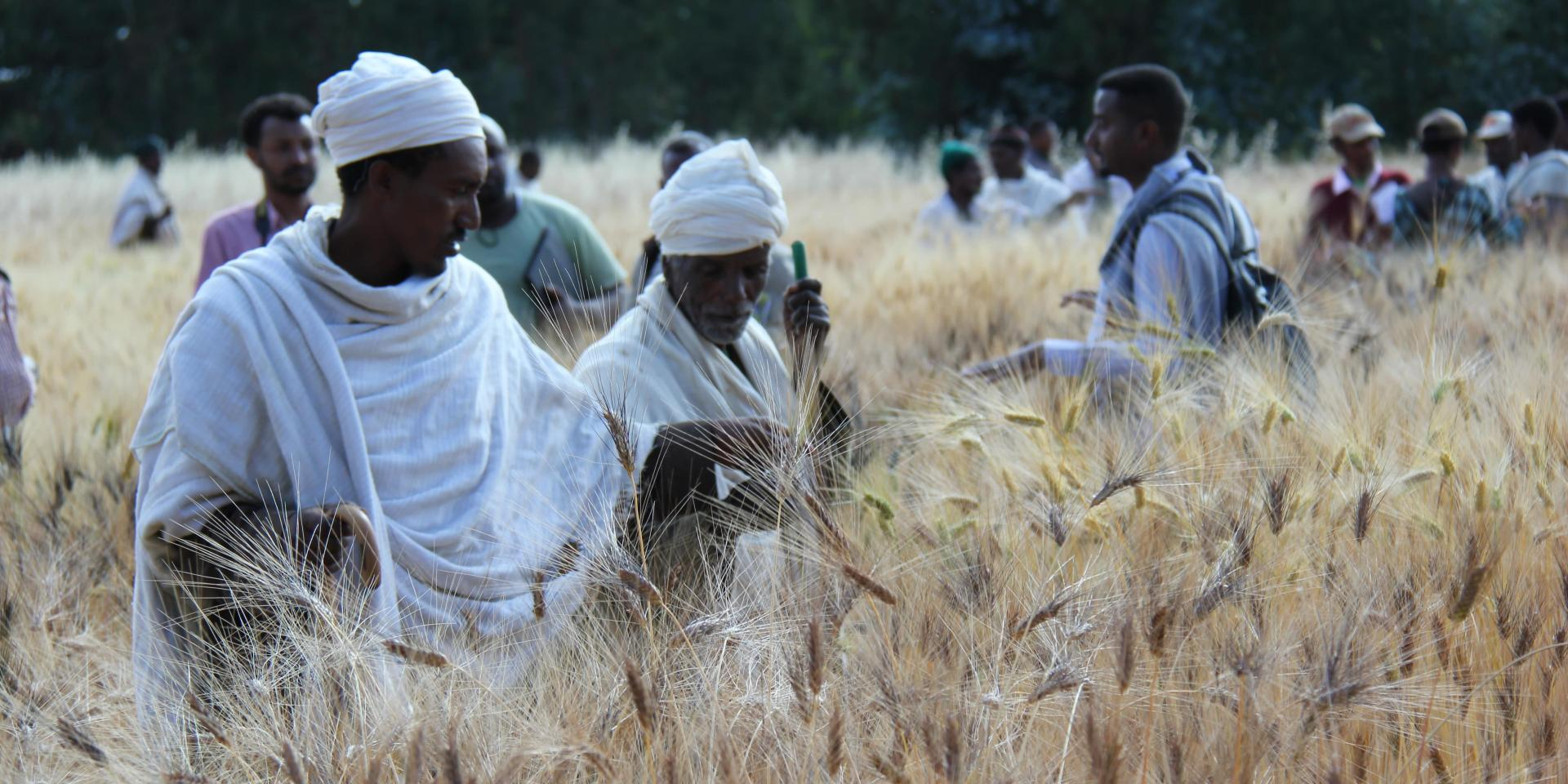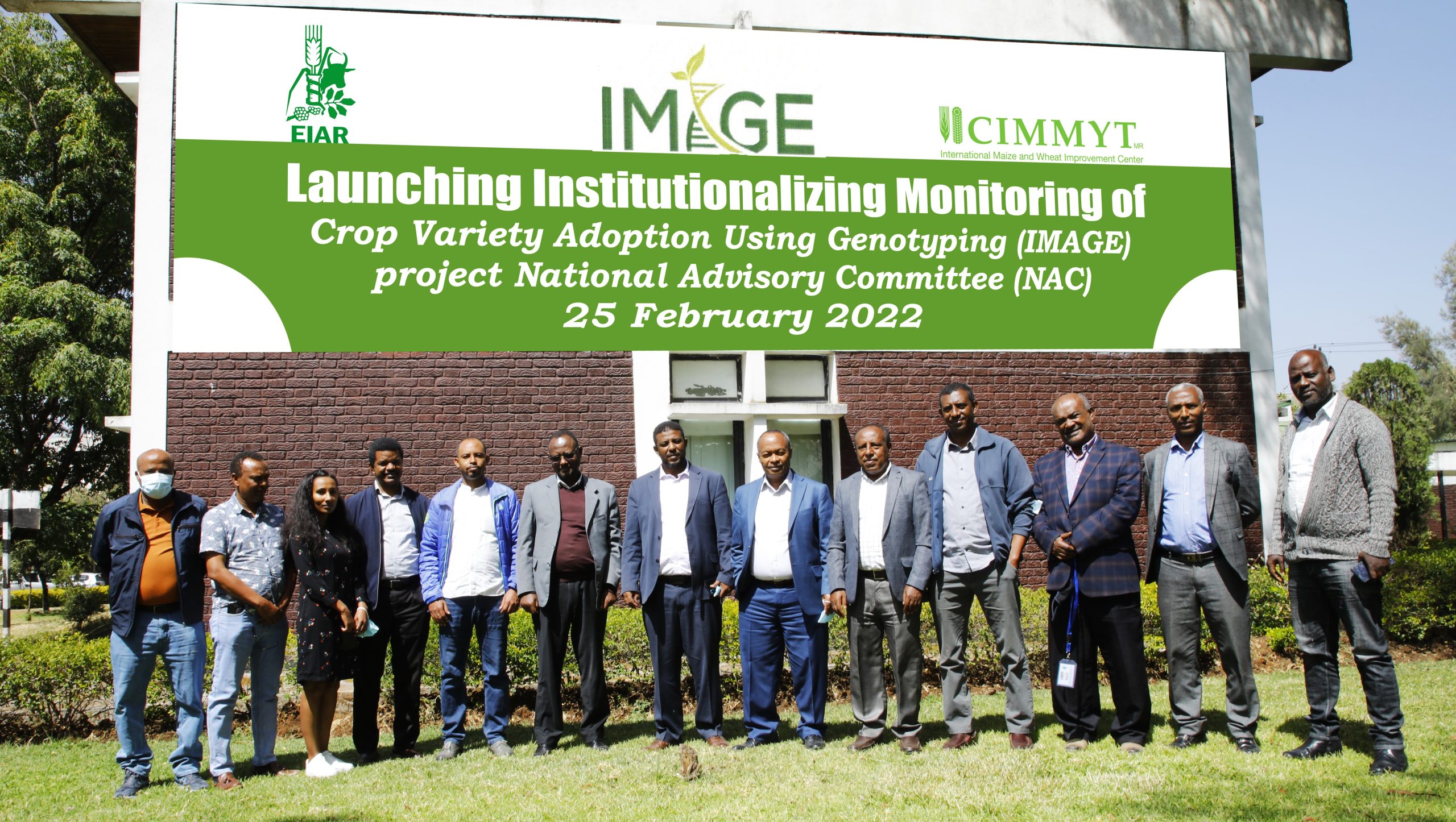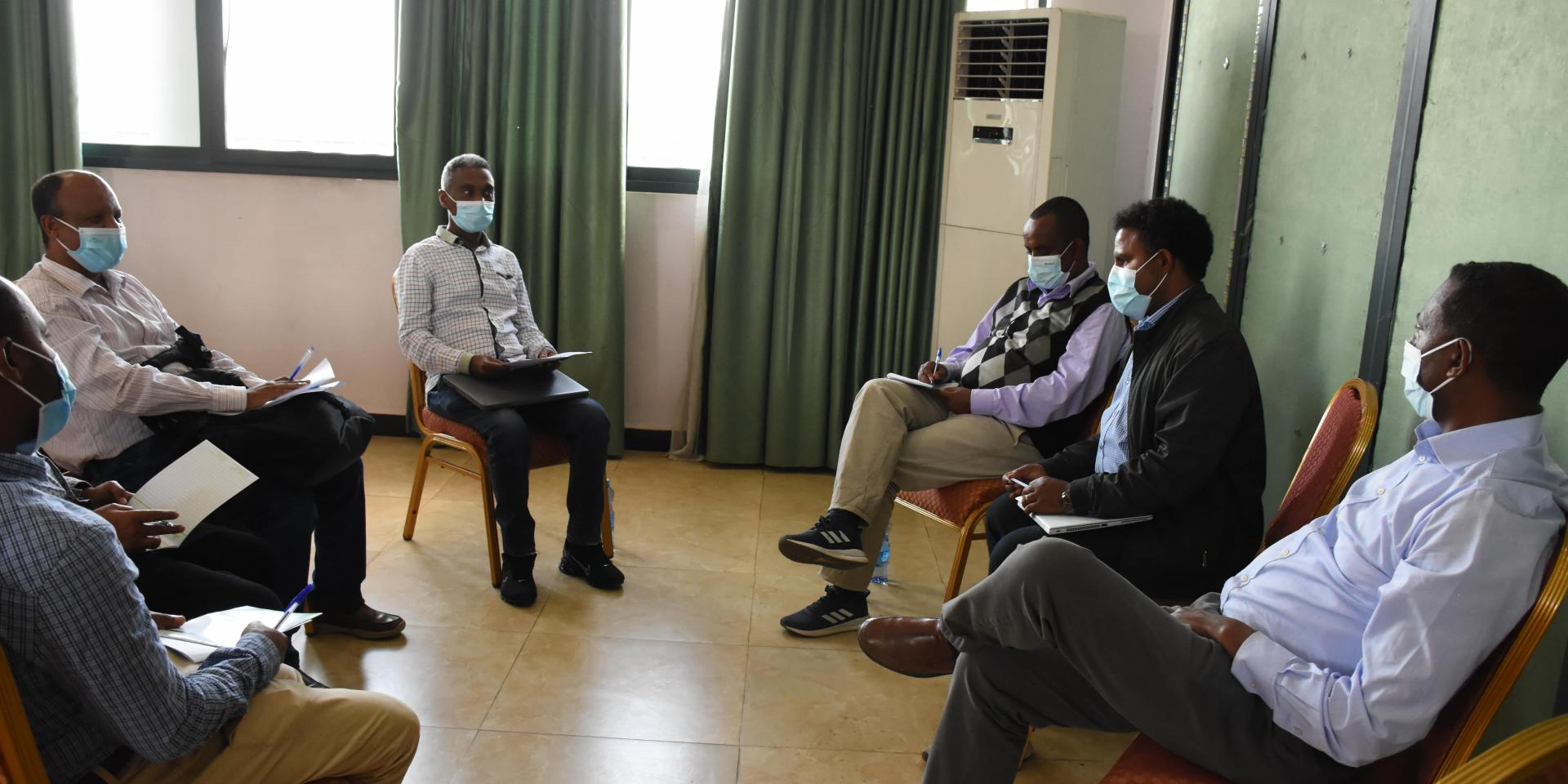
(Credit: Bioversity)
The negative impacts of climate shocks have undermined the food security of millions of people in Ethiopia, where predominantly rain-fed agriculture and cereals comprise 82% of the crop area and are particularly susceptible to extreme climate events like drought or flooding. Predictions that can account for potential climate events can facilitate efforts of governmental agencies to proactively engage in climate mitigation efforts.
Led by the International Center for Maize and Wheat Improvement (CIMMYT), the Accelerating Impact of CGIAR Climate Research for Africa (AICCRA) project conducted a five-day training workshop in Adama, Ethiopia for 12 data experts from 23-27 December 2021 on the CCAFS Regional Agricultural Forecasting Toolbox (CRAFT) Tool.
The five-day training workshop exposed select national experts involved in data collection and analysis of crop performance to the CRAFT tool, which is expected to improve accuracy, efficiency, and speed of forecasts.
The participants of the training were experts from the Ministry of Agriculture (MoA), National Meteorology Agency (NMA), and Ethiopian Disaster Risk Management Commission (EDRMC).
CRAFT has been developed in collaboration with CIMMYT, the International Crops Research Institute for the Semi-Arid Tropics (ICRISAT), and the University of Florida through the Capacitating African Smallholders with Climate Advisories and Insurance Development (CASCAID-II) program. CRAFT is a flexible and adaptable software platform, relying on a crop engine to run pre-installed crop models and on the Climate Predictability Tool (CPT) to utilize seasonal climate predictions to produce crop yield forecasts. The tool has been calibrated, evaluated, and tested under Ethiopian ecological conditions.
In the opening of the training workshop, Esayas Lemma, Director of the Crop Development Directorate at the MoA, emphasized institutions must be equipped with the necessary analytical and decision support tools to enable decision makers to make critical decisions at the right time due to increasing challenges to food security. He added the training organized by CIMMYT through the AICCRA-Ethiopia project was timely and important for enhancing the capacity of the experts drawn from the three institutions and building national capacity in using modern decision support tools.
Kindie Tesfaye, senior scientist at CIMMYT, stated the training was organized to help experts in national institutions in applying decision support tools to equip decision makers with information to help them minimize costs, save lives, and enhance long-term climate risk management and policy options in Ethiopia. “We hope to bring this technology to other countries following this roll-out in Ethiopia,” Tesfaye said.
“The training is an eye-opener for me, and this is the type of tool that we have been looking for,” said Mss. Berktawit, a trainee from EDRMC.
“The CRAFT tool has several applications in the MoA, and we are lucky to have this training. With some additional training, we at the ministry should be able to use it to support our crop monitoring and early warning works,” said Mr. Zewdu, a trainee from the MoA.
A follow up training session will be organized to certify participants as they continue working with CRAFT. “Feedback from these users will be vital to optimize inputs for CRAFT and to develop an intuitive user interface,” Tesfaye said.

 Environmental health and biodiversity
Environmental health and biodiversity 
